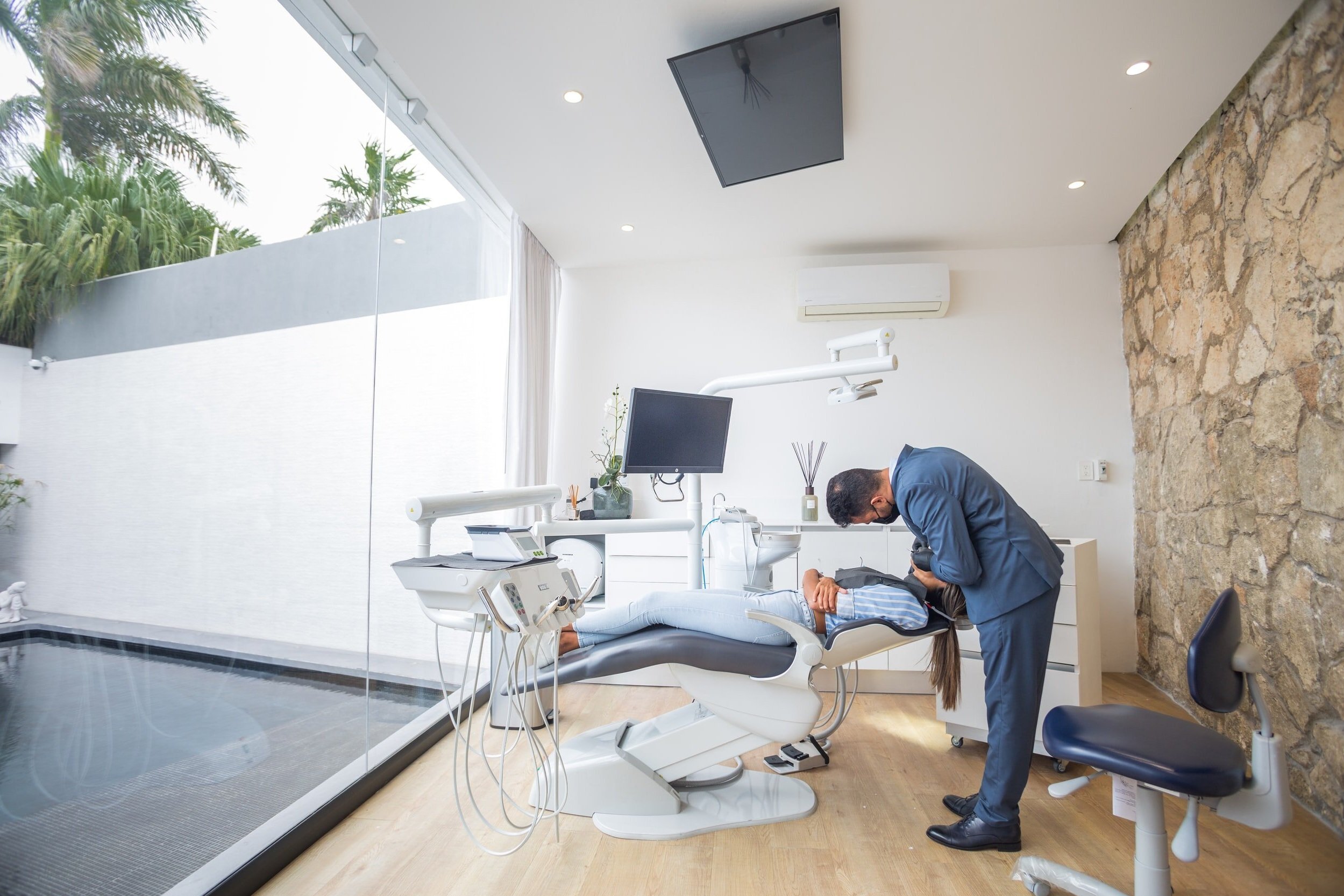
Dental Crowns in Colombia
Dental Crowns in Colombia at a Third the Cost
Free online consultation.
Fantastic patient reviews.
Dental work guarantee.
Fluent English.
Free transportation available.
Cost of Dental Crowns in Colombia
Priced in USD
| Metal Ceramic Crown | $450 |
| Porcelain Crown | $590 |
| Zirconia Crown | $600 |
The Best Dentists in Colombia for Dental Crowns
One team serving Colombia’s major cities.
Dental Crowns in Colombia Reviews
Loving the dental crowns I got in Colombia!
"Dr. Julio Oliver was excellent. He was professional, experienced, and kind. He’s a good man. My crowns are the best I’ve ever had done, and the price could not be beat. I’m happy to recommend them if you’re ever in Cartagena visiting this beautiful city. I’ll be back. Thank you!"
- Joe K.
Dental Crowns in Colombia FAQs
-
A dental crown is a tooth-shaped "cap" that is placed over a tooth to restore its shape, size, strength, and/or to improve its appearance. The crowns, when cemented into place, fully encase the entire visible portion of a tooth that lies at and above the gum line.
-
To protect a weak tooth from breaking or to hold together parts of a cracked tooth.
To restore an already broken tooth or a tooth that has been severely worn down.
To cover and support a tooth with a large filling when there isn't a lot of tooth left.
To help restore a bite.
To hold a dental bridge in place.
To cover misshapen or severely discolored teeth.
To cover a dental implant.
-
Dental Crowns are done in 2-5 business days, depending on quantity.
-
Work is done in 2-3 sessions, each lasting 1-2 hours.
During the first appointment, you and the dentist will discuss your desired shape, size, spacing, and shade of dental crowns.
Based on this feedback, the dentist will create temporary dental crowns with a lighter, more flexible, but less durable material.
When you and the dentist are both happy with the temporaries, an impression will be made which will be used by the lab to custom create your permanent dental crowns.
Once they’re ready, you will return for a second appointment where the dentist will remove your temporaries and place the permanents.
-
Treatment is pain-free, but every patient is different. Some feel no discomfort at all, while others may experience occasional sensitivity to hot and cold.
-
Dental crowns last anywhere from 5-15 years. There are a variety of factors that can have an impact on crown life, such as your personal oral hygiene, the types of foods you eat, and habits such as teeth grinding and biting your fingernails.
-
Crowns do not decay, but the underlying tooth can. Without proper oral hygiene, a new cavity (decay) may form. When this happens, your crown will no longer fit and may fall off.
It’s important that you get your teeth and restorations (crowns, fillings, veneers) regularly checked for any signs of new cavities. With regular checkups and cleanings, you can prevent possible problems that may happen to the tooth underneath your crown.
-
Avoid sticky, chewy foods like chewing gum and caramel, which have the potential of grabbing and pulling off the crown.
Minimize use of the side of your mouth with the temporary crown. Shift the bulk of your chewing to the other side of your mouth.
Avoid chewing hard foods (such as raw vegetables or hard breads), which could dislodge or break the crown.
Slide flossing material out-rather than lifting out-when cleaning your teeth. Lifting the floss out, as you normally would, might pull off the temporary crown.
-
Crowns are treated just like any other tooth. Stick to your daily oral hygiene regimen of flossing, brushing, and mouthwash. Make sure to come in for your regular dental check-ups twice a year. Read more dental crown care instructions here.
-
A buildup is needed when the loss of tooth structure is such that it will not hold a crown so the tooth has to be “built up” with a material and then shaped so that a crown will adhere.
-
A post and core crown is a type of dental restoration required where there is an inadequate amount of sound tooth tissue remaining to retain a conventional crown on a tooth that has had a root canal. A post is cemented into a prepared root canal, which retains a core restoration, which retains the final crown.
-
We’d be happy to! Most patients qualify for free dental related transportation. This includes airport pickup, hotel check in, to and from dental appointments, x-rays, and back to the airport.

